31 Books Published by Coffee House Press on AALBC — Book Cover Collage
 Alive at the End of the World
Alive at the End of the World
by Saeed JonesCoffee House Press (Sep 13, 2022)
Read Detailed Book Description
Pierced by grief and charged with history, this new poetry collection from the award-winning author of Prelude to Bruise and How We Fight for Our Lives confronts our everyday apocalypses.
In haunted poems glinting with laughter, Saeed Jones explores the public and private betrayals of life as we know it. With verve, wit, and elegant craft, Jones strips away American artifice in order to reveal the intimate grief of a mourning son and the collective grief bearing down on all of us.
Drawing from memoir, fiction, and persona, Jones confronts the everyday perils of white supremacy with a finely tuned poetic ear, identifying moments that seem routine even as they open chasms of hurt. Viewing himself as an unreliable narrator, Jones looks outward to understand what’s within, bringing forth cultural icons like Little Richard, Paul Mooney, Aretha Franklin and Diahann Carroll to illuminate how long and how perilously we’ve been living on top of fault lines. As these poems seek ways to love and survive through America’s existential threats, Jones ushers his readers toward the realization that the end of the world is already here—and the apocalypse is a state of being.
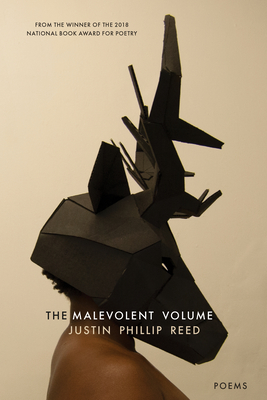 The Malevolent Volume
The Malevolent Volume
by Justin Phillip ReedCoffee House Press (Apr 07, 2020)
Read Detailed Book Description
The Malevolent Volume explores the myths and transformations of Black being, on a continuum between the monstrous and the sublime.
"I’d quote a few of the breathtaking detonations across this incredible collection if there weren’t so many. On every page the intimacies of mind and body, myth and memory are simultaneously sung and said. It’s not quite enough to salute the literary ties and tangles, the range and urgency of subjects, the layered lyric linguistics. The Malevolent Volume is roundly astounding. Reed is making a new and wholly irreducible line through the waters of American poetry." —Terrance Hayes
"’Its trumpets, they will ramify.’ Deliberate in its every movement, this collection is a most satisfying force of will. Justin Phillip Reed’s follow-up, The Malevolent Volume, is a masterpiece to which I will ’be always arriving.’ If our work as poets is to transform what most would call violence and what beasts accept as natural, this is a blueprint for how to do so ethically and masterfully. Here, in word, is a guttural and gutting music. Every poem becomes a new and necessary etymology of ’malevolent.’ The beast in me bows to the beast in you, Justin. This is a restorative Black eco-poetics; where afropessimism meets afrofuturism." —Marwa Helal
"Horror is a genre of encounters not with the unknown, but with what is most familiar—and therefore most unshakeable. If it is a monstrous language that Justin Phillip Reed employs in The Malevolent Volume, it’s a monster you already know well. Reed is a master of many things—meter, momentum, lexical richness, the musculature of syntax, how to haunt an insistently violent canon—but perhaps chief among them is the dark magic of harnessing language’s wilds into something that blooms into a real shout inside you. You must understand: it’s not strangeness you’re seeing here. It is audacity—the audacity of the queer, Black body, the brilliant body, which won’t, and won’t, and won’t die.&rdquo —Franny Choi
Praise for Justin Phillip Reed
Winner of the 2018 National Book Award for Poetry
Recipient of a 2019 Ruth Lilly and Dorothy Sargent Rosenberg Fellowship
Winner of the 2019 Lambda Literary Award in Gay Poetry
Finalist for the 2019 Kate Tufts Discovery Award
BCALA 2019 Honor Best Poetry Award winner
Library Journal, "Best Books 2018"
"Boldly and carefully executed and perfectly ragged. In these poems, Justin Phillip Reed experiments with language to explore inequity and injustice and to critique and lament the culture of white supremacy and the dominant social order." —National Book Foundation
"Reed’s visceral and teasingly cerebral debut probes black identity, sexuality, and violence and is inseparably personal and political. He displays a searing sense of injustice about dehumanizing systems, and his speakers evoke the quotidian with formidable eloquence …" —Publishers Weekly, starred review
"[Reed’s] poems take up the body in desire and violence, and they do so by thrusting the reader into a stark visceral encounter with their material." —The New York Times
"Raw, nervy, reverberant, densely packed language whose import simply can’t be reduced to easy explanation … One-of-a-kind brilliant." —Library Journal
"Indecency made me stand up and applaud." —The Millions
"Reed’s poems are formally inventive, especially when he works in concrete ways on the page… . The reader winds up in a new place without realizing they were being moved there." —The Rumpus
"Rich with musical echoes and sonic ironies." —Vulture
"Reed’s wit and formal experimentation, quicksilver and luminous, shows the world as it is, while detailing how the very people that society most devalues, demeans, and seeks to destroy are its true visionaries." —The Adroit Journal
"Reed wrestles with finding the language to convey the pain of that double oppression and still manages to create terrible beauty." —Signature
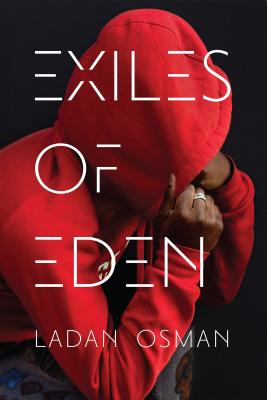 Exiles of Eden
Exiles of Eden
by Ladan OsmanCoffee House Press (May 07, 2019)
Read Detailed Book Description
Poems steeped in the Somali tradition refract the streets of Ferguson, the halls of Guantanamo, and the fields near Abu Ghraib through the myth of Adam and Eve to ask: What does it mean to be a refugee?
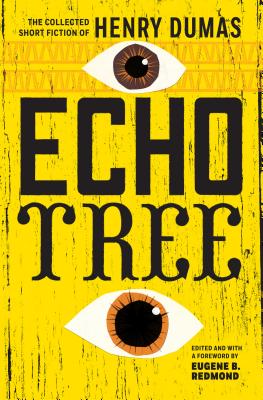 Echo Tree: The Collected Short Fiction of Henry Dumas
Echo Tree: The Collected Short Fiction of Henry Dumas
by Henry DumasCoffee House Press (Nov 13, 2018)
Read Detailed Book Description
Praise for Henry Dumas:
"[Henry Dumas] had completed work, the quality and quantity of which are almost never achieved in several lifetimes… . He was brilliant. He was magnetic and he was an incredible artist." ?Toni Morrison
"Each sentence a revelation of experience… . Actual black art, real, man, and stunning." ?Amiri Baraka
"[Dumas’s] fiction is among the most significant produced by a writer of any race in this country in the 1960s." ?Quincy Troupe
Henry Dumas’s fabulist fiction is a masterful synthesis of myth and religion, culture and nature, mask and identity. From the Deep South to the simmering streets of Harlem, his characters embark on real, magical, and mythic quests. Humming with life, Dumas’s stories create a panopticon of mid-century African American life, interweaving Christian metaphor, African cosmologies, diasporan folklore, and America’s history of slavery and endemic racism.
Henry Dumas was born in Sweet Home, Arkansas, in 1934 and moved to Harlem at the age of ten. He joined the Air Force in 1953 and spent a year on the Arabian Peninsula. Upon his return, Dumas became active in the civil rights movement, married, had two sons, attended Rutgers University, worked for IBM, and taught at Hiram College in Ohio and at Southern Illinois University. In 1968, at the age of thirty-three, he was shot and killed by a New York Transit Authority policeman.
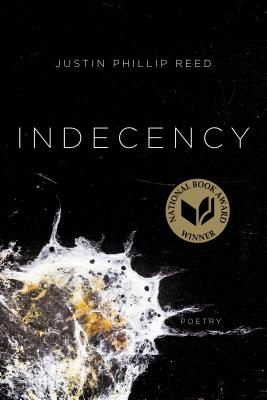 Indecency
Indecency
by Justin Phillip ReedCoffee House Press (May 08, 2018)
Read Detailed Book Description
Winner of the 2018 National Book Award for Poetry
Finalist for the 2019 Kate Tufts Discovery Award
Finalist for the Lambda Literary Award in Gay Poetry
BCALA 2019 Honor Best Poetry Award winner
Library Journal, "Best Books 2018"
"Reed’s visceral and teasingly cerebral debut probes black identity, sexuality, and violence and is inseparably personal and political. He displays a searing sense of injustice about dehumanizing systems, and his speakers evoke the quotidian with formidable eloquence …" —Publishers Weekly, starred review
"[Reed’s] poems take up the body in desire and violence, and they do so by thrusting the reader into a stark visceral encounter with their material." —The New York Times
"Raw, nervy, reverberant, densely packed language whose import simply can’t be reduced to easy explanation … One-of-a-kind brilliant." —Library Journal
"Indecency made me stand up and applaud." —The Millions
"Reed’s poems are formally inventive, especially when he works in concrete ways on the page… . The reader winds up in a new place without realizing they were being moved there." —The Rumpus
"A poignant, searing book." —Entertainment Weekly
"Rich with musical echoes and sonic ironies." —Vulture
"Reed’s wit and formal experimentation, quicksilver and luminous, shows the world as it is, while detailing how the very people that society most devalues, demeans, and seeks to destroy are its true visionaries." —The Adroit Journal
"Reed wrestles with finding the language to convey the pain of that double oppression and still manages to create terrible beauty." —Signature
"Reed’s love of language is ever-present in his joyful play with words throughout his poetry." —The Root
"In his debut poetry collection, Indecency, [Reed] wrestles with self-perception, intimacy, and placement." —St. Louis Magazine
"An unflinching exploration of power, race, sexuality, gender, the personal and the political." —Vox
"Political and personal, tender, daring, and insightful―the author unpacks his intimacies, weaponizing poetry to take on masculinity, sexuality, exploitation, and the prison industrial complex and unmask all the failures of the structures into which society sorts us." —The Rumpus
"As we grapple with issues of equity and inclusion, insights that Reed invokes are essential. They expose a treacherous legacy, an inheritance we all must own." —The Manitou Messenger
"Within the containment of mostly invented forms, Justin Phillip Reed’s Indecency is the ’carnal weight’ I’ve longed for in poetry. It’s the guttural dream of utterance that strokes and pokes the body. Reed’s deft craft is so rare, so precise, and driven by language whose surface is texture like teeth, that it seems like freed speech into the ache of repressive histories, white gazes, and uninvited invasions. Violence in Reed’s hands is no longer a thing somewhere out there but is inside the heart, as close as any black desire. Indecency is the new duende. It is like no other book I’ve read; Reed is an extraordinary talent." —Dawn Lundy Martin
"In this gorgeous first collection, there is no separation of sound from the language it travels in, from the body that produces it, from the experience that evokes it. Justin Phillip Reed achieves an impressive unity of form and content, never obscuring meaning in its varied violences inside the poems’ luxuriant unfolding—the ’absent-present’ rich with tough phantoms and the fragile living, and underneath: an unwillingness to buckle under unwanted and unasked-for burdens. In conversation with Frank O’Hara and Dawn Lundy Martin, with Michael Brown and Ezell Ford, with Ralph Ellison and Harryette Mullen, with the named and unnamed populace who understand sufferance but also resilience, pain but also sweetness, Indecency is a refusal of pretense, a celebration of possibilities within human complexity—and the hard-earned freedom inextricable from the public and private histories from which it is wrought." —Khadijah Queen
"Don’t avert: Justin Phillip Reed demands we witness that who’s missing was taken, who fell was dropped, and who died was murdered. Witness, too, that who done it will claim everything but responsibility. That obscenity drives the poet to fracture language into the exquisite shrapnel of lyric paroxysms, leaves a ’body / … deboned of its irony.’ That indecency triggered these devastating poems. Fuck what they claim; here’s what Reed has seen." —Douglas Kearney
"It would be a mistake, in heeding Reed’s outrage and his sense of urgency (and heed it we should) to hurry past the beauty in these poems, of which there is plenty to be found: potent word play, intricate rhyme, and stray lines like ’a smeared sweet on his cheek in the parenthesis of a grin’ or ’the dense streets clapped into a quick-descended stillness.’" —Assignment
Praise for Justin Phillip Reed:
"More than their beauty, what the poems of A History of Flamboyance flaunt is their insistence, a restless and, finally, necessary intellectual rigor that demands as much from the reader as it will delight and trouble her. But don’t be tricked in thinking these are consequently too-stiffened poems, lacking blood. There’s blood moving in every line of Reed’s poems, and there’s nerve, which is only to say that here is also honest if sometimes painful feeling, vulnerability articulated with power. If these poems are confessions, then Reed’s many formal interventions mean to break up, down or apart, reveal and revise, perhaps, the performance of those confessions, an effort to expose their inner makings, motives, our histories, these ’constructed rituals’ of shame and desire. I’d say this fits a mind that seems at turns insatiable, wanting more of our world and of the poem; at other times more reserved, wanting less; but at all times is a mind nevertheless committed to the poem’s queerest possibility, evoking its many traditions just as it disrupts or rewrites them. So these poems teach me. Justin Phillip Reed is a productive new voice in contemporary poetry, ’rose up like a hard new fact, ’ and one that feels in every way as irrefutable." —Rickey Laurentiis
"To be re-born inside these poems of chasm is a rigor not quietly undertaken. Justin Phillip Reed undoes the sonnet’s deep organization with the violent abandon of a boy become object in the stink of rapture. A ripping of form occurs. A cataclysm of self. And what do we find in these body ruins? I, for one, hear the hunt of masculine desire beating through—familiar, a known place—calling like a rustling of trees in night’s black thought. These poems at once trouble this bringing forth and grieve the ’softness’ become ’satchel.’ Indeed, how do we ever re-gather ourselves? When I read these poems by Reed, I’m left energized, bereft, and altered. They will forever live in my imagination." —Dawn Lundy Martin
 Prelude to Bruise
Prelude to Bruise
by Saeed JonesCoffee House Press (Sep 09, 2014)
Read Detailed Book Description
Praise for Saeed Jones:
from under my pillow. And take your sheets with you.
Drag them under. Make pretend ghosts. I can’t have you rattling the bed springs
so keep still, keep quiet. Mistake yourself for shadows.
Learn the lullabies of lint. Saeed Jones works as the editor of BuzzfeedLGBT.
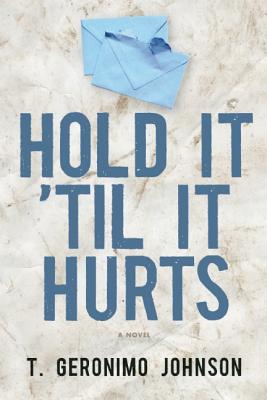 Hold It ’Til It Hurts
Hold It ’Til It Hurts
by T. Geronimo JohnsonCoffee House Press (Aug 28, 2012)
Read Detailed Book Description
Finalist for the 2013 PEN/Faulkner Award
"The magnificence of Hold It ’Til It Hurts is not only in the prose and the story but also in the book’s great big beating heart. These complex and compelling characters and the wizardry of Johnson’s storytelling will dazzle and move you from first page to last. Novels don’t teach us how to live but Hold It ’Til It Hurts will make you hush and wonder."?Anthony Swofford, author of Jarhead"This rich and sophisticated first novel brings together pleasures rarely found in one book: Hold It ’Til It Hurts is a novel about war that goes in search of passionate love, a dreamy thriller, a sprawling mystery, a classical quest for a lost brother in which the shadowy quarry is clearly the seeker’s own self, and a meditation on family and racial identity that makes its forerunners in American fiction look innocent by comparison."?Jaimy Gordon, National Book Award winner for Lord of Misrule
When Achilles Conroy and his brother Troy return from a tour of duty in Afghanistan, their white mother presents them with the key to their past: envelopes containing details about their respective birth parents. After Troy disappears, Achilles?always his brother’s keeper?embarks on a harrowing journey in search of Troy, an experience that will change him forever.
Heartbreaking, intimate, and at times disturbing, Hold It ’Til It Hurts is a modern-day odyssey through war, adventure, disaster, and love, and explores how people who do not define themselves by race make sense of a world that does.
T. Geronimo Johnson was born in New Orleans, Louisiana. His fiction and poetry have appeared in Best New American Voices, Indiana Review, Los Angeles Review of Books, and Illuminations, among others. A graduate of the Iowa Writers’ Workshop and a former Stegner Fellow at Stanford University, Johnson teaches writing at the University of California-Berkeley. Hold It ’Til It Hurts is his first book.
 The Last Warner Woman
The Last Warner Woman
by Kei MillerCoffee House Press (Mar 27, 2012)
Read Detailed Book Description
"Miller is a name to watch."The Independent"This is magical, lyrical, spellbinding writing."GrantaAdamine Bustamante is born in one of Jamaica’s last leper colonies. When Adamine grows up, she discovers she has the gift of "warning": the power to protect, inspire, and terrify. But when she is sent to live in England, her prophecies of impending disaster are met with a different kind of fearpeople think she is insane and lock her away in a mental hospital.Now an older woman, the spirited Adamine wants to tell her story. But she must wrestle for the truth with the mysterious "Mr. Writer Man," who has a tale of his own to share, one that will cast Adamine’s life in an entirely new light. In a story about magic and migration, stories and storytelling, and the New and Old Worlds, we discover it is never one person who owns a story or has the right to tell it.Born in Kingston, Jamaica, in 1978, Kei Miller is the author of The Same Earth, winner of the Una Marson Prize for Literature; and Fear of Stones, which was shortlisted for the Commonwealth Writers’ Prize for Best First Book. His most recent poetry collection has been shortlisted for the Jonathan Llewellyn Rhys Prize, the Bocas Prize for Caribbean Literature, and the Scottish Book of the Year Award. In 2008 he was an International Writing Fellow at the University of Iowa. Miller currently divides his time between Jamaica and Scotland.
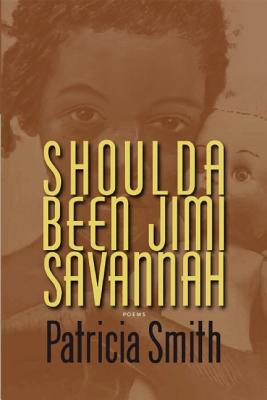 Shoulda Been Jimi Savannah
Shoulda Been Jimi Savannah
by Patricia SmithCoffee House Press (Mar 27, 2012)
Read Detailed Book Description
Winner of 2013 Wheatley Book Award in Poetry
Finalist for 2013 William Carlos Williams Award
Winner of 2014 Bobbitt National Prize for Poetry
"Patricia Smith is writing some of the best poetry in America today. Ms Smith’s new book, Shoulda Been Jimi Savannah, is just beautiful?and like the America she embodies and represents?dangerously beautiful. Shoulda Been Jimi Savannah is a stunning and transcendent work of art, despite, and perhaps because of, its pain. This book shines." ?Sapphire
"One of the best poets around and has been for a long time." ?Terrance Hayes"Smith’s work is direct, colloquial, inclusive, adventuresome." ?Gwendolyn BrooksIn her newest collection, Patricia Smith explores the second wave of the Great Migration. Shifting from spoken word to free verse to traditional forms, she reveals "that soul beneath the vinyl."Patricia Smith is the author of five volumes of poetry, including Blood Dazzler, a finalist for the 2008 National Book Award, and Teahouse of the Almighty, a National Poetry Series selection. She lives in New Jersey.
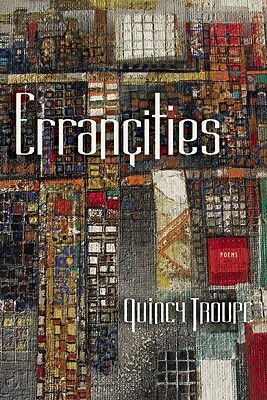 ErranaçIties
ErranaçIties
by Quincy TroupeCoffee House Press (Jan 24, 2012)
Read Detailed Book Description
"Troupe is an innovator of form and tone who shifts quickly from a lofty, elegiac mode into burlesque or smoky, jazzed-down pop phraseology."—Publishers Weekly"Troupe’s poems are exuberant and passionate outpourings with driving, syncopated rhythms and improvisatory riffs of colorful language."—Star Tribune (Minneapolis)Coined with the French word errance "to wander" in mind, these poems rove through ancient Yoruba to the streets of Harlem to the tropical heat of Guadeloupe and emerge with a new vocabulary for the transformations of the physical, philosophical, and musical worlds. Known for his long lyrical narrative poems and invocation of the oral tradition, Quincy Troupe captures the histories and deaths of Michael Jackson and Miles Davis, celebrating both their accomplishments and contradictions. This collection embraces the improvisation of a soul as it offers a paen to the possibilities of poetry.The author of eight volumes of poetry, Quincy Troupe has also collaborated with Chris Gardner on The Pursuit of Happyness, which was made into a major motion picture, and with Miles Davis on Miles: The Autobiography. His friendship with Miles Davis is chronicled in Miles and Me. Troupe has also recently children’s books on Magic Johnson and Stevie Wonder. He divides his time between New York and a countryside village in Guadeloupe.
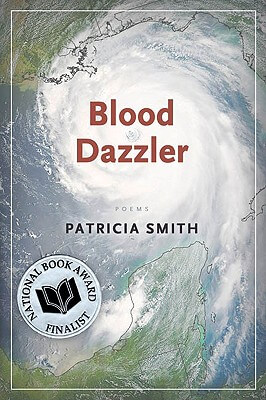 Blood Dazzler
Blood Dazzler
by Patricia SmithCoffee House Press (Sep 01, 2008)
Read Detailed Book Description
In minute-by-minute detail, Patricia Smith tracks Hurricane Katrina as it transforms into a full-blown mistress of destruction. From August 23, 2005, the day Tropical Depression Twelve developed, through August 28 when it became a Category Five storm with its “scarlet glare fixed on the trembling crescent,” to the heartbreaking aftermath, these poems evoke the horror that unfolded in New Orleans as America watched it on television.Assuming the voices of flailing politicians, the dying, their survivors, and the voice of the hurricane itself, Smith follows the woefully inadequate relief effort and stands witness to families held captive on rooftops and in the Superdome. She gives voice to the thirty-four nursing home residents who drowned in St. Bernard Parish and recalls the day after their deaths when George W. Bush accompanied country singer Mark Willis on guitar:The cowboy grins through the terrible din,
***
And in the Ninth, a choking woman wails
Look like this country done left us for dead.An unforgettable reminder that poetry can still be “news that stays news,” Blood Dazzler is a necessary step toward national healing.Patricia Smith is the author of four previous collections of poetry, including Teahouse of the Almighty, winner of the Hurston/Wright Legacy Award and the Paterson Poetry Prize. A record-setting, national poetry slam champion, she was featured in the film Slamnation, on the HBO series Def Poetry Jam, and is a frequent contributor to Harriet, the Poetry Foundation’s blog. Visit her website at www.wordwoman.ws.
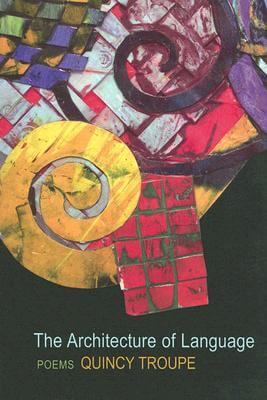 The Architecture of Language
The Architecture of Language
by Quincy TroupeCoffee House Press (Oct 01, 2006)
Read Detailed Book Description
“Troupe’s poems resemble Romare Bearden’s collages: muscular and colorful.”—North American Review
�
In the Whitmanic tradition, Troupe’s poetry explodes from the page, capturing the spirit of America. Inspired by contemporary art, music, literature, and sports, The Architecture of Language dismantles the dangerously clichéd, wooden rhetoric saturating our national discourse and rebuilds the language in poems bursting with beauty, energy, and enough imaginative fire to light the way to the future.
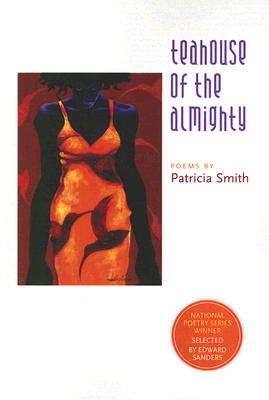 Teahouse Of The Almighty (National Poetry)
Teahouse Of The Almighty (National Poetry)
by Patricia SmithCoffee House Press (Sep 01, 2006)
Read Detailed Book Description
A National Poetry Series winner, chosen by Edward Sanders.
“What power. Smith’s poetry is all poetry. And visceral. Her poems get under the skin of their subjects. Their passion and empathy, their real worldliness, are blockbuster.”—Marvin Bell
“I was weeping for the beauty of poetry when I reached the end of the final poem.”—Edward Sanders, National Poetry Series judge
From Lollapalooza to Carnegie Hall, Patricia Smith has taken the stage as this nation’s premier performance poet. Featured in the film Slamnation and on the HBO series Def Poetry Jam, Smith is back with her first book in over a decade—a National Poetry Series winner weaving passionate, bluesy narratives into an empowering, finely tuned cele-bration of poetry’s liberating power.
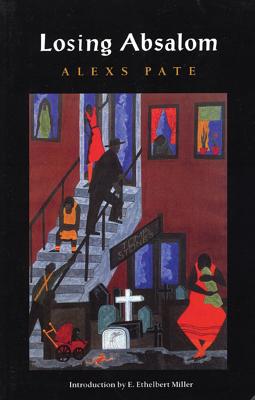 Losing Absalom
Losing Absalom
by Alexs D. PateCoffee House Press (Apr 01, 2005)
Read Detailed Book Description
Sonny Goodman may have hopped the “modern underground railroad called education” and arrived in far-flung Minneapolis, but with the impending death of his father, North Philadelphia is calling him home. Quickly caught in the web that inner-city life has woven around his family’s dreams, Sonny must find the strength to confront the toll urban corrosion has wrought upon the ones he loves.Named Best First Novel by the Black Caucus of the American Library Association, winner of the Minnesota Book Award and compared to the work of James Baldwin and August Wilson, Alexs D. Pate’s highly absorbing debut novel “rings with a truth as immediate as body counts in the headlines, as enduring as a classic tragedy.”—San Francisco Chronicle
 Echo Tree: The Collected Short Fiction Of Henry Dumas (Black Arts Movement Series)
Echo Tree: The Collected Short Fiction Of Henry Dumas (Black Arts Movement Series)
by Henry DumasCoffee House Press (Sep 01, 2003)
Read Detailed Book Description
Henry Dumas’s fiction is a masterful synthesis of myth and religion, culture and nature, mask and identity. From the Deep South to the simmering streets of Harlem, his characters embark on surreal and mythic quests armed only with wit, words, and wisdom. Championed by Toni Morrison, Walter Mosley, and Quincy Troupe, -Dumas’s books have long been out of print. All of his short fiction is collected here, for the first time, and includes several previously unpublished stories.Henry Dumas was born in Sweet Home, Arkansas, moved to Harlem, joined the Air Force, attended Rutgers, worked for IBM, and taught at Hiram College in Ohio and Southern Illinois University. In 1968, at the age of thirty-three, he was shot and killed by a New York Transit Authority -policeman.
More about the Black Art’s Movement
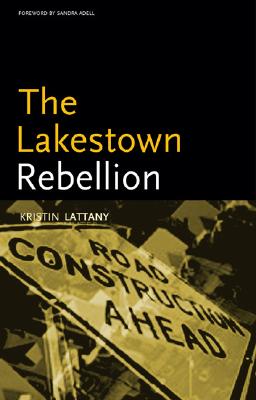 The Lakestown Rebellion (Black Arts Movement Series)
The Lakestown Rebellion (Black Arts Movement Series)
by Kristin HunterCoffee House Press (Feb 01, 2003)
Read Detailed Book Description
Originally founded by runaway slaves, Lakestown, New Jersey, is a black community populated by people from a variety of classes and creeds. When plans for a new highway are routed past a nearby wealthy white suburb but threaten the heart of Lakestown, its citizens are inspired by their Under-ground Railroad heritage and devise a series of hilarious plans to thwart the construction and to preserve their town and way of life. Unavailable for 30 years, this reprint is more relevant now than ever.Kristin Lattany has written nine novels, including the highly acclaimed children’s book The Soul Brothers and Sister Lou. A teacher of English at the University of Pennsylvania for 23 years, she lives in New Jersey.
More about the Black Art’s Movement
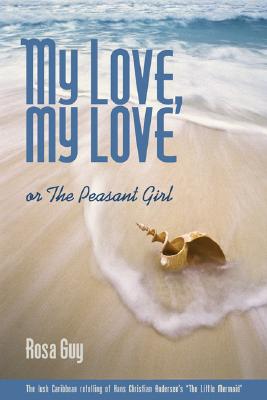 My Love, My Love: or The Peasant Girl
My Love, My Love: or The Peasant Girl
by Rosa GuyCoffee House Press (Sep 01, 2002)
Read Detailed Book Description
Rosa Guy’s tropical retelling of "The Little Mermaid" is the gorgeous, tragic love story of Désirée, a beautiful peasant girl who devotes herself to the handsome, aristocratic young man whose life she has saved. When his upper-class fami-ly feels that Désirée’s skin is too dark and her family too poor for a boy destined for power and wealth, Désirée proves that she is willing to give everything for love. This lovely reprint will break your heart.Born in Trinidad, Rosa Guy has written 15 novels and has received the Coretta Scott King Award, and The New York Times Outstanding Book of the Year citation.
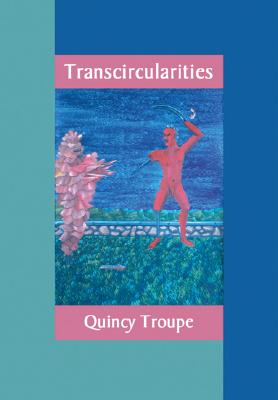 Transcircularities: New & Selected Poems
Transcircularities: New & Selected Poems
by Quincy TroupeCoffee House Press (Sep 01, 2002)
Read Detailed Book Description
Much like the vibrant, riveting reading performances for which he is so well-known, Quincy Troupe’s award-winning poetry is pure rhythm and deep bass beats that barely stay on the page. This magnificent new volume captures Troupe’s voice stronger than ever as he issues celebratory and pointed statements on jazz, sports, love, art, literature, American life, and the sublimity of it all.Winner of a Peabody and two American Book Awards, Quincy Troupe has published several books of poetry and two bestselling books about Miles Davis. He is a professor of literature and creative writing at the University of California, San Diego.
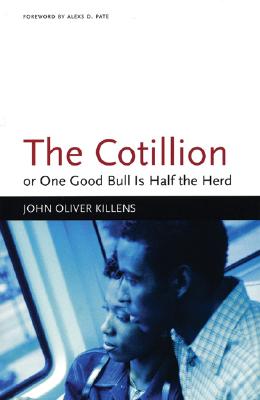 The Cotillion: or, One Good Bull Is Half the Herd (Black Arts Movement Series)
The Cotillion: or, One Good Bull Is Half the Herd (Black Arts Movement Series)
by John Oliver KillensCoffee House Press (Feb 01, 2002)
Read Detailed Book Description
Beautiful, high-stepping Yoruba of Harlem is invited to the annual cotillion thrown by African American high society of Queens. Caught between the indifference of her father, the excitement of her social-climbing mother, and her prodigal boyfriend’s militancy, Yoruba persuades her sister debutantes to challenge the aging doyennes in one of the most sidesplitting scenes in American literature.Nominated for a Pulitzer in 1972, Killens’s uproarious satire captures the conflicts within black society in the 1960s. The Cotillion is the fourth title in Coffee House Press’s acclaimed Black Arts Movement series.John Oliver Killens was born in Macon, Georgia in 1916. Co-founder of the Harlem Writers Guild, he taught at Howard and Columbia Universities. His other novels include And Then We Heard the Thunder, and The Great Black Russian.
More about the Black Art’s Movement
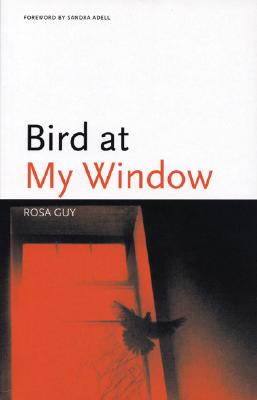 Bird at My Window (Black Arts Movement Series)
Bird at My Window (Black Arts Movement Series)
by Rosa GuyCoffee House Press (May 01, 2001)
Read Detailed Book Description
"What happens to a dream deferred?" asked Langston Hughes. Bird at My Window answers that question with a psychological study of a black man whose aspirations are subverted by his environment. Wade Williams wakes up in a mental hospital and is told he has assaulted his sister. As he retraces his steps during the course of the novel, the rich complexity of mid-twentieth-century Harlem and its problematic relationship to its residents is revealed in this powerful cultural critique.Rosa Guy was born in 1928 in Trinidad, and came to the United States in 1932. The author of fifteen novels and the editor and translator of several volumes, Guy is the founder of the Harlem Writer’s Guild. She lives in New York, New York.
 Necessary Distance: Essays and Criticism
Necessary Distance: Essays and Criticism
by Clarence MajorCoffee House Press (Apr 01, 2001)
Read Detailed Book Description
Bringing together critical essays, articles, and reviews by 1999 National Book Award for Poetry finalist, this landmark collection is an impressive look back—and forward—by one of our most visionary authors. From essays on the craft of writing, to critiques of contemporary and classic African-American authors and their work, to observations on the quirkiness of the writing and publishing life, Necessary Distance is a compendium of the best nonfiction prose by an important figure in contemporary American letters.This collection is a portrait of the artist’s rise to prominence in American letters. "A writer is usually a person who has to learn how to keep his ego—like his virginity—and lose it at the same time. In other words, he becomes a kind of twin of himself. He remains that self-centered infant while transcending him to become the observer of his experience and, by extension, the observer of a wide range of experience within his cultural domain." From his apt observations on cultural doubleness, to his redefinition of a political poetry that is "organic in its ideas, … that in no way compromised its own artistic nature," to his consumate statement on the concept of rhythm in African -American poetry, Necessary Distance is a sweeping tour of new ground in literature and poetics.Clarence Major is the author of nine novels, nine books of poetry, and many nonfiction works and was a 1999 finalist for the National Book Award in Poetry for Configurations. Major teaches at the University of California in Davis. He has written for the New York Times Book Review, The Washington Post, The Los Angeles Times, Essence, and dozens of other periodicals.
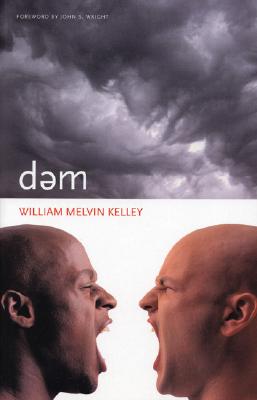 Dem (Black Arts Movement Series)
Dem (Black Arts Movement Series)
by William Melvin KelleyCoffee House Press (Feb 01, 2001)
Read Detailed Book Description
Originally published in 1967, dem is a classic of the Black Arts Movement. This surrealistic satire lays bare the convoluted and symbiotic relationship between whites and blacks. Coffee House Press is pleased to bring back into print this widely unavailable work.
Upper-middle-class Manhattanite Mitchell Pierce and his wife Tamara enact the twists and turns of human relationships in this startling fable about the intersections of race, class, sex, love, and marriage. Kelley questions the nature and validity of subjective realities as he examines the constraints and consequences of prejudice.
Mitchell is convinced he has it made. With advancement at work, an attractive wife, and a comfortable apartment, he has achieved the 1960s version of the white man’s American dream. Then, slowly but surely, that dream becomes a nightmare, and Mitchell can’t seem to wake up. Did he really find his boss’s wife and children dead in an upstairs bedroom of their suburban home? Did his wife really become pregnant after a brief fling with their black maid’s boyfriend?
Notable as a satiric portrayal of white characters from an African American perspective, this milestone achievement tugs at our ability to suspend disbelief and forces us to reexamine stereotypes from the past and current images in America’s racial divide.
William Melvin Kelley’s other books include the novels A Different Drummer, A Drop of Patience, Dunfords Travels Everywheres, and the short story collection, Dancers on the Shore. Kelley attended the Fieldston School and Harvard, where he studied under Archibald MacLeish and John Hawkes. He lives in Harlem, is a professor of Creative Writing at Sarah Lawrence College, and regularly teaches seminars at the Taos Institute of Art in Taos, New Mexico.
More about the Black Art’s Movement
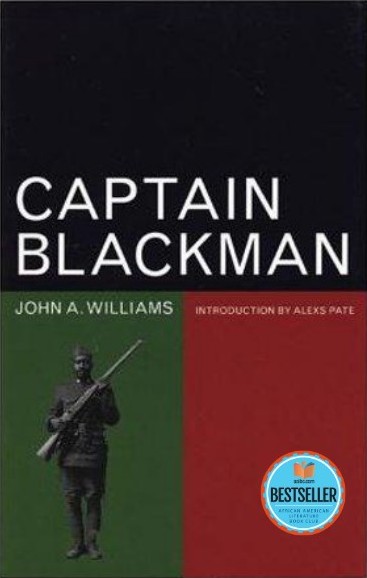 Captain Blackman
Captain Blackman
by John A. WilliamsCoffee House Press (Apr 01, 2000)
Read Detailed Book Description
Features an introduction by Alexs Pate
John A. Williams, journalist and educator, did exceptional work in fiction and nonfiction during the 1960s and 1970s, propelling his name to the forefront of American letters. Of the more than 20 books he produced, none attracted more controversy than his 1972 Captain Blackman, a fictional survey of race, segregation, war, and American democracy. As Captain Abraham Blackman lies critically wounded in the Vietnam War, he re-imagines the role of the Black man during every significant conflict in U.S. military history. Writer George Davis said in a May 21, 1972 New York Times review: ‘It may turn out to be among the important works of fiction of the decade. It is without Williams’ most ambitious work.’ It totally deserves your attention.” —Robert Fleming
A ‘fascinating novel’ of race and war in historical US conflicts — through the eyes of a black soldier inexplicably traveling through time … This ‘necessary [and] boldly experimental’ historical novel from the two-time American Book Award-winning author brilliantly explores the complicated legacy of the African American soldier throughout US history.” —The New York Times Book Review
John A. Williams, journalist and educator, did exceptional work in fiction and nonfiction during the 1960s and 1970s, propelling his name to the forefront of American letters. Of the more than 20 books he produced, none attracted more controversy than his 1972 Captain Blackman, a fictional survey of race, segregation, war, and American democracy. As Captain Abraham Blackman lies critically wounded in the Vietnam War, he re-imagines the role of the Black man during every significant conflict in U.S. military history. Writer George Davis said in a May 21, 1972 New York Times review: ‘It may turn out to be among the important works of fiction of the decade. It is without Williams’ most ambitious work.’ It totally deserves your attention.” —Robert Fleming
A ‘fascinating novel’ of race and war in historical US conflicts — through the eyes of a black soldier inexplicably traveling through time … This ‘necessary [and] boldly experimental’ historical novel from the two-time American Book Award-winning author brilliantly explores the complicated legacy of the African American soldier throughout US history.” —The New York Times Book Review
In the midst of the racial tensions in the army during the Vietnam War, Capt. Abraham Blackman does what he can to educate his fellow black soldiers on the history of race relations in the US military. But when he is gravely wounded in the jungle of Southeast Asia, he finds himself inexplicably rocketed into those conflicts of the past.
From slavery to segregation, Blackman experiences firsthand the racism — from subtle and insidious discrimination to outright violence — of the American military’s past. Yet no matter the conflict, be it the Revolutionary War, the Civil War, or World War II, Blackman fights for a racist military establishment that expects black soldiers to die for the cause of “freedom” — even when they are denied it at home. Ultimately, Blackman’s greatest challenge will take place in his own time, in Vietnam, where he must battle not only to survive but for that most elusive of victories: justice.
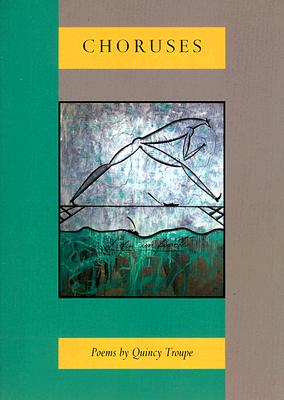 Choruses: Poems
Choruses: Poems
by Quincy TroupeCoffee House Press (Oct 01, 1999)
Read Detailed Book Description
Quincy Troupe launches a pyrotechnic display of jazz rhythms, political commentary, sports tributes, travelogues, and architectural abstracts in his latest volume of poetry, withChoruses. Merging traditional poetic form with contemporary content, Troupe fashions "words & sounds that build bridges toward a new tongue" , as he writes in "Song," an ars poetica. Only Troupe could write a sestina chronicling the mass suicide of Heaven’s Gate, or a villanelle for Michael Jordan: "rising up in time, michael jordan hangs like an ikon, suspended in space / / his eyes two radar screens screwed like nails into the mask of his face." A masterful technician, Troupe experiments with free verse as well, repeating the same words in three different line-break configurations in "Images: Three Variations of Shape & Form." From haiku to tonka, from Mark McGwire to Sammy Sosa, from bebop to hip hop, these choruses "become sound tracks lifted off a poet’s tongue, / / syllables, within moments, are transformed into song…""Troupe’s sixth collection covers a wide cultureal bandwidth: the Monica-gate scandal, the Heaven’s Gate mass suicide; jazz greats like Miles Davis (Troupe’s Miles: The Biography is the standard) and Richard Muhal Abrams; sports stars like Michael Jordon, Sammy Sosa and Mark McGwire; lesser know artists like GeorgeLEwis & the Dancers at Laguna Pueblo, painter Robert Colescott and many more. Perhaps to formally mirror the mix, Troupe puts sonnets, villanelles and sestinas in the midst of his more characteristic jazz-inflected free-verse lines. The best poems here, however, eschew traditional European forms, and foreground Troupe’s mastery of a sprawling American vernacular: "the tongue in his hands now was once a saxophone when whole,/ was a blur of fingers whooshing through golden keys of his voice belling/ … .conjures up spirits, the drumbeat of strong hearts goosing everything along." Troupe doesn’t quite go as far into uninhibited linguistic musicality as, say, Clark Coolidge, Will Alexander or the best rhapsodic passages in Kerouac. Yet his unwillingness to forgo teh referential severrs a powerful didactic function beyond "the tough aesthetics" of contemporary poetry, as Troupe often employ
 Teducation: Selected Poems
Teducation: Selected Poems
by Ted JoansCoffee House Press (Oct 01, 1999)
Read Detailed Book Description
Black Dues! Black Blues! Black News! , Ted Joans trumpets in his tribute to Langston Hughes. What Library Journal wrote in 1969 holds true today: "This collection of his work clearly reveals the influence of Langston Hughes, his mentor and friend. Joans, however, has the harsher and more strident tone necessary to accurately reflect today’s society. As he says in one poem: ’We must fall in love and glorify our beautiful black nation / We must create black images / give the world / a black education.’"One of the first black poets to become involved in surrealism and a first generation Beat, Joans is an expatriate poet whose work is enjoying renewed interest. This major collection of poems written during the past forty years is a significant contribution to American letters. Teducation is the first single-volume collection representing the life’s work of Joans, a once roommate of Charlie Parker and a contemporary of Allen Ginsberg and Bob Kaufman.Energetic African American Beat poet, surrealist painter, longtime Paris-based expatriate, African traveler, jazz expert and jazz musician, the versatile 71-year old Joans (Black Pow Wow Jazz Poems) has published 35 books, but never, till now, a selected. Joans’s rakish, unsatisfiable sensibility can make his work in Beat modes as technically innovative as Burroughs, as polemically exhuberant as Ginsberg and as comic as Corso. His early work, like theirs, depends heavily on surrealist modes; "The rhino roam in the bedroom/ where the lovely virgin wait/ the owl eats a Baptist bat/ adn God almighty is too late." The masterful longer "Timbuktu Tit Tat Toe" packs a few hundred years of Black America’s relationship to aftica into four pages of giddy declamation. Likke Amiri Baraka (who lauds Joans’s verse), Joans came to enbrace an aesthetic of people’s poetry, creating exhuberant forms to meet his needs, stirring the pot with neologism and slogan, and calling on an arsenal of heroes from Malcom X to Jean-Michael Basquiat. "And Then There Were None" locates political rage in Louis Armstrong’s famous grin: "you tried to turn him into your ’musical golliwog doll’/ you wanted his trumpet to blow what you said so/ you misinterpreted his wide smile." Repudiatin
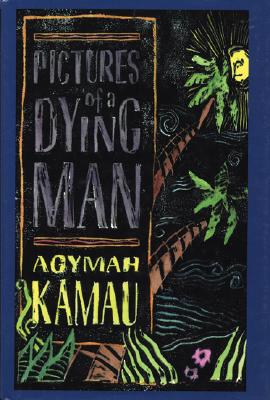 Pictures of a Dying Man: A Novel
Pictures of a Dying Man: A Novel
by Agymah KamauCoffee House Press (Sep 01, 1999)
Read Detailed Book Description
When Gladstone Belle is found hanging from a beam in his own house, everyone in the village tries to understand who he really was, and why he killed himself. In this Caribbean Citizen Kane, the voices of Gladstone’s past accumulate, complementing and contradicting each other, to arrive at an understanding of Gladstone’s true identity and the circumstances that complicated his life. And his death.
Is a human life merely the sum of other people’s perceptions of it, a compilation of rumors and hearsay? What happens if those views are erroneous? Continuing in the vein of his critically acclaimed novel, Flickering Shadows, Agymah Kamau weaves a colorful story, full of deception, love, and loss, around a community’s remembrances of a Gladstone Belle. We discover the intricacies of living in a small Caribbean community by seeing things through the eyes of an array of vivid characters, including Isamina, his wife; Esther and Sonny-Boy, his mother and father; Carl, the suspicious husband of his former lover; PeeWee, the village gangster; Theophilus Bascombe, a disgruntled coworker; and Marie Antoinette LaSalle, the histrionic clairvoyant.
In a diverse community and political world riddled with rumors of murder and disappearance, Gladstone’s humble beginnings and honest manner win the community’s trust. He quickly moves up the political ladder. But his life is cut short when he decides that he can no longer look the other way. He realizes that everything around him has suffered from this corruption: his marriage, his friendships, and his dignity. The narrative of Gladstone Belle’s life and death illumines the complexity of class distinctions within a postcolonial community."Gladstone Belle, a man with a high position in island politics, is found hanging from the rafters of his home, which triggers gossip about his lief and tragic end. Did he kill himself in remorse for the wrongs, civil and social, he had committed or out of realization that his wife wa unfaithful? Or was he killed? A local schoolteacher, and the widow’s lover, is the primary narrator of the life and times of this complicated man. From diaries reluctantly accepted from Gladstone’s father, the narrator learns the deceased man’s priv
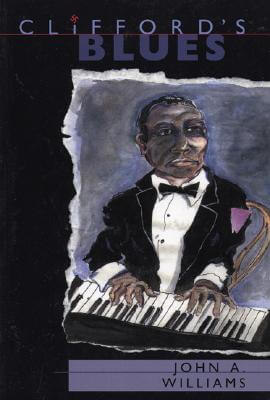 Clifford’s Blues
Clifford’s Blues
by John A. WilliamsCoffee House Press (Apr 01, 1999)
Read Detailed Book Description
“John A. Williams proves again that he is the greatest American novelist of the twentieth century”
—Ishmael Reed
A black musician arrested by Nazis in 1930s Germany endures the horrors of the Dachau death camp in this harrowing novel based on a true story!
A self-proclaimed “gay negro” from New Orleans, Clifford Pepperidge made his name in the smoky nightclubs of Harlem in the 1920s, playing piano alongside Bessie Smith, Duke Ellington, and other jazz greats. A decade later, he thrills crowds nightly in the cabarets of Weimar Berlin. But dark days are on the horizon as the Nazi Party rises to power. Arrested by Hitler’s Gestapo during a roundup of homosexuals, Clifford finds himself placed in “protective custody” and transported to a concentration camp. Stripped of his dignity and his identity, and plunged into a nightmare of forced labor, starvation, and abuse, he seeks escape in his music. When a camp SS officer and jazz aficionado recognizes Clifford, the gentle musician learns just how far a desperate man will go in order to survive.
Shining a light on a little-known aspect of the Holocaust, Clifford’s Blues is a disturbing portrait of a dark era in world history and a poignant celebration of the resilience of the human spirit and the power of music.
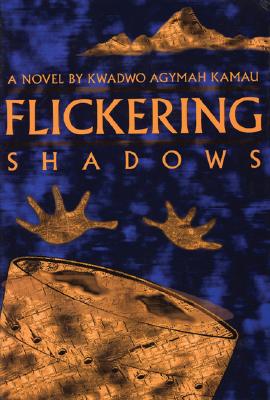 Flickering Shadows
Flickering Shadows
by Agymah KamauCoffee House Press (Sep 01, 1996)
Read Detailed Book Description
Political corruption, lust, and betrayal poison a Caribbean island paradise.
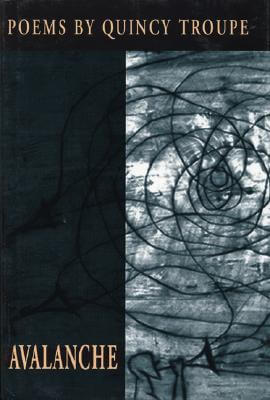 Avalanche
Avalanche
by Quincy TroupeCoffee House Press (Apr 01, 1996)
Read Detailed Book Description
A collection of poetry about men, women, jazz, and American life.
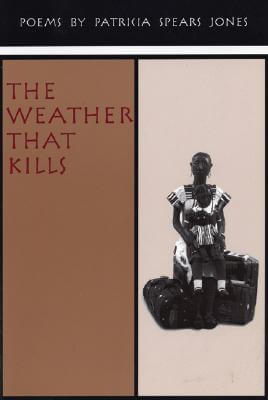 The Weather That Kills
The Weather That Kills
by Patricia Spears JonesCoffee House Press (Jun 01, 1995)
Read Detailed Book Description
Evocative imagery that leaps from the page with the force of gunfire. "Poems like stars in a constellation: each glowing point connects in a pattern charting lives full of love and disappointment, injustice and defeat, joy and resilience."—Library Journal "Vibrant with the intensity of blues singers."—Feminist Bookstore News
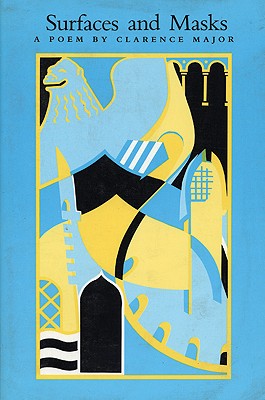 Surfaces and Masks
Surfaces and Masks
by Clarence MajorCoffee House Press (Aug 01, 1988)
Read Detailed Book Description
A book-length poem by an African-American author that uses the city of Venice as its backdrop, considering issues of racial and national identity. By the author of My Amputations.
